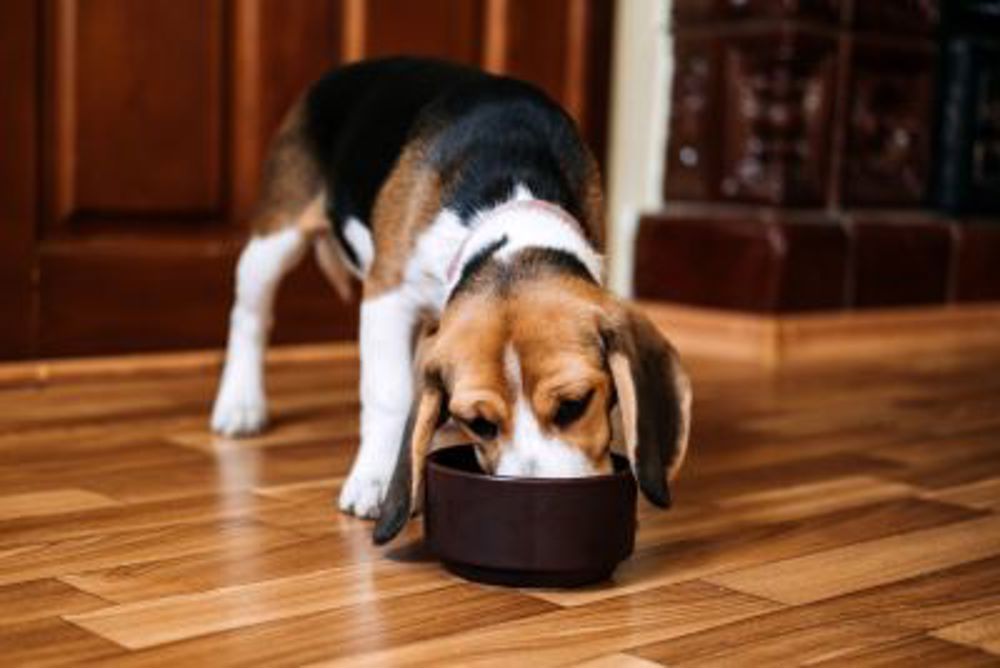
Neutering is another milestone in your dog’s life that requires a reassessment of their diet. If your dog has been neutered (spayed in the case of a female dog or castrated in the case of a male), then this is a key time to review the food you’re giving them, together with the exercise they get, to help ensure that they don’t become overweight.
Obesity in pets is a huge issue worldwide and increases the risks of many diseases – such as heart and respiratory disease, osteoarthritis, diabetes, and urinary disease. Prevention of obesity is important to help maintain the health of your dog and, in turn, helps you enjoy long and happy lives together. Once your dog has been neutered, it’s important to avoid them becoming overweight; ‘prevention is better than cure’.
Why do pets gain weight after neutering?
Several things happen once your dog is neutered. Their metabolism changes: the removal of sexual organs decreases the production of reproductive hormones, such as oestrogen and testosterone. This leads to a decrease in your dog’s metabolic rate. Simply put, their body no longer needs the same amount of calories to do the same job. At the same time, the loss of their sexual hormones will lead to decreased physical activity. Male dogs for instance will not roam in the hunt for a mate.
Interestingly, neutering could have a direct effect on your dog’s appetite too. Oestrogens can suppress appetite, and therefore the removal of this hormone can lead to an increased food intake. The double whammy is that this happens alongside the decrease in metabolic burning of calories, all of which predispose to weight gain.
How to stop weight gain after neutering
It makes sense that in order to prevent weight gain following neutering, some kind of calorific adjustment is needed. So, the amount you feed your pet following neutering should be reduced, typically starting at around a 10% reduction. After this, it’s important to regularly check your dog’s weight and body condition score to see if it’s about right.
For adult dogs, ‘light’ diets may be appropriate. These diets have been reduced in energy (primarily fat) but without reducing other nutrient levels. Feeding guidelines on packs will have this energy reduction already taken into account, but regular checking of weight and adjustment may still be necessary.
If your neutered dog is still a puppy, then your vet will be able to guide you as to the most appropriate feeding amount to feed them, which will depend on their size and age.
The importance of regular weight checks
Following the adjustment of their diet, it’s really important that you keep a close eye on your pet’s weight. Feeding guidelines on the pack will be a starting point, and regular weight checks, body condition scoring (and growth checks if a puppy) will be important so that you can adjust the feeding amount for your individual pet.
Weight gain after neutering is not inevitable. Together with regular exercise, which will help maintain lean body mass (muscle helps drive the metabolism), appropriate feeding will help your pet to stay at an ideal weight which will have lifelong benefits.
Find a vet near you
If you're looking for a vet practice near you, why not visit the Royal College of Veterinary Surgeons' Find a vet page.
Find a dog trainer or behaviourist
Our online register helps you find accredited dog training instructors and canine behaviourists who have proven specialist knowledge, skills and experience.Think your dog may be affected?
If you're worried about your dog's health, always contact your vet immediately!
We are not a veterinary organisation and so we can't give veterinary advice, but if you're worried about any of the issues raised in this article, please contact your local vet practice for further information
